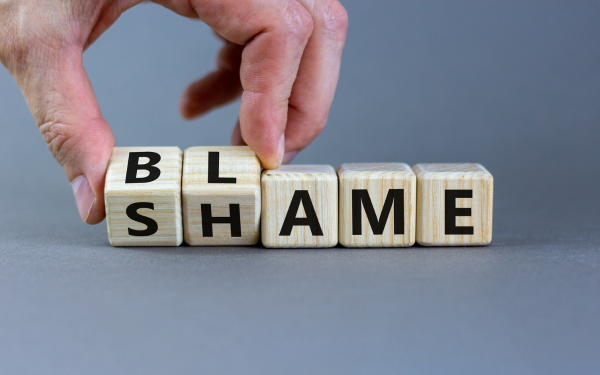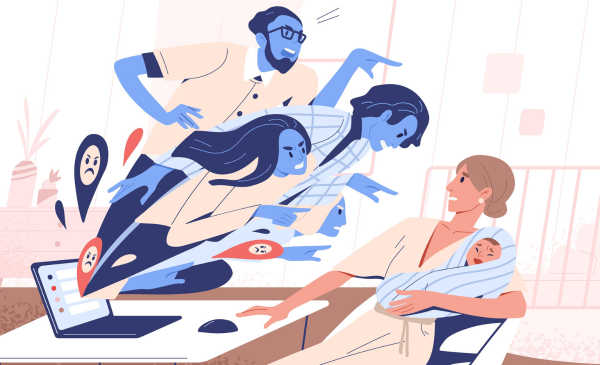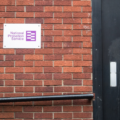
by Vicki Shevlin
How far do social workers hold mothers entirely responsible for the care and safety of their children?
- Very (58%, 340 Votes)
- Moderately (26%, 156 Votes)
- Not so much (8%, 48 Votes)
- Not at all (8%, 45 Votes)
Total Voters: 589
When I started in social work, I thought I would be prepared to manage the misogyny embedded in practice. But when it came to working with mothers who were victims of domestic abuse, I found myself developing habits that amounted to poor practice.
Without realising it, influenced by others on my team, I began focusing all my initial contact on mothers. I was arranging home visits based on when they were at home with their children, relying on them to share information and give consent, and, worst, holding them accountable for implementing the ‘safety’ in safety plans.
My practice began to emulate what is known as ‘mother blaming’; a phrase commonly used in literature to describe the discourse of ‘disproportionate responsibilisation of women for the protection of children and for their partners’ abuse’ (Wild, 2022).
What is ‘mother blaming’?
Mother blaming occurs when practitioners perpetuate the ideology that mothers are primarily responsible for the safety, wellbeing and care of children (Strega et al, 2008), even when they themselves are victims.
This may look like inviting mothers to meetings, but not following up when fathers do not attend. Sometimes, it may be the writing of safety plans that heavily rely on mothers to take certain actions to ‘provide safety’, with fathers omitted completely – such as a reliance on mothers to uphold recommended contact arrangements.
As a new social worker then, certain habits became embedded. I was writing sentences talking about ‘mothers’ capacity to protect’ and not taking steps to look into what fathers were doing.
I look back on supervisions where I talked about ‘hidden’ or ‘unseen’ men but I now know that, without action, my use of the phrases simply reinforced the problem.
It wasn’t enough for me to recognise that a male perpetrator was missing from my intervention – I needed to do something about it.
On one occasion, a mother told me she had felt I was blaming her, rather than supporting her. She didn’t trust that I would genuinely help her.
The impact of mother blaming
If social workers hold a narrow viewpoint that mothers are solely to blame for the behaviour and actions of perpetrators, it reduces the likelihood of them building strong and meaningful relationships with parents. This affects the effectiveness of interventions with children and families.
When blame is unfairly placed on mothers, it also disproportionately affects those who are part of the global majority, living in poverty or systematically marginalised.

Photo by Good Studio/ AdobeStock
There is also a risk of social workers causing harm through secondary victimisation, where victims suffer further harm because of the behaviour and attitudes of professionals.
As social workers, we have to question the ideologies that we are modelling to children and young people in the way we treat their family members.
‘You can centre children and hold empathy for mothers’
The Children Act 1989 says the welfare and safety of children is paramount.
Many practitioners feel that they cannot prioritise the safety of children and at the same time acknowledge mothers as victims of domestic abuse. This is often attributed to legislation and policy focusing solely on children’s safety and the lack of services available to victims.
As a result, mothers are repeatedly held accountable for the actions of perpetrators.
It is important that, as social workers, we understand the limitations of binary thinking.
You can centre children and hold empathy for mothers. You can assess and support; care for families in a problematic system and stay conscious of the risks of mother blaming.
You don’t have to choose one or the other.
What needs to change
This starts with social work leaders who are committed to cultural change. Managers should be committed to changing habits, challenging language and, ultimately, encouraging their teams to think critically about systemic bias, particularly around domestic abuse.
Changing entrenched practice approaches is not simple. Many of us don’t want to admit that it is often easier to work with a parent who answers the phone, turns up to meetings or is more likely to be at home when we visit.
When effort is not put into trying to contact perpetrators, it is a choice, albeit one exacerbated by high caseloads, emotional stress and organisational pressure. Practitioners have to be supported in this.
Abandoning problematic language
Social workers are often required to be lead professionals in cases of domestic abuse. When you chair meetings, you should talk about the tendency of professionals to attribute blame to mothers whilst ignoring fathers. This can set the tone for further conversations, planning and interventions that take a systemic approach.
Local authorities can also make a commitment to stop using unhelpful terminology such as ‘mother’s failure to protect’ or ‘father not engaging’. It’s problematic and perpetuates harmful tropes.
Social workers need to be supported to include alternative approaches in their assessments. This includes training specific to perpetrator behavior as well as mother and child relationships.
When you understand a child’s world and lived experience, you can gain insight into complex relationships that can be harmed when we make reductive assumptions.
References
Strega, S, Fleet, C, Brown, L, Dominelli, L, Callahan, M, Walmsley, C (2008) ‘Connecting father absence and mother blame in child welfare policies and practice’ Children and Youth Services Review 30(7)
Wild, J (2022) ‘Gendered Discourses of Responsibility and Domestic Abuse Victim-Blame in the English Children’s Social Care System’ Journal of Family Violence 38(3)
Vicki Shevlin is a qualified social worker, trainer and creator of Social Work Sorted, an online platform dedicated to providing advice for newly qualified practitioners





 Family help: one local authority’s experience of the model
Family help: one local authority’s experience of the model  ‘I spent the first three months listening’: how supportive leadership can transform children’s services
‘I spent the first three months listening’: how supportive leadership can transform children’s services  How senior leaders in one authority maintain a culture of excellence
How senior leaders in one authority maintain a culture of excellence  How staff support ensures fantastic outcomes for children and families
How staff support ensures fantastic outcomes for children and families  Workforce Insights – showcasing a selection of the sector’s top recruiters
Workforce Insights – showcasing a selection of the sector’s top recruiters 

 Facebook
Facebook X
X LinkedIn
LinkedIn Instagram
Instagram
Here’s a thorny thing though ~ the latest effort to develop trauma-informed approaches is based on the over production of cortisol, the stress hormone, and it’s impact on the unborn child during pregnancy …
Thoughts…
As a mother going through child procedures while pregnant and experiencing extreme mother blaming attitude from my social worker. The biggest stress is not from my former partner who abuse has escalated to high risk situations since I have kept my boundaries and refused contact. It comes from the fact that every incident that happens there are further consequences place on me and the outcome for my children. I have done everything, worked with IDVA, done everything asked of me and my professionals stated that and voted child in need because of that. Yet due to increased violence I now face further court proceedings and having to fight to keep my children. The stress and mother blaming attitude from social services and fear of permanently losing my children is causing far more harm to my unborn than anything else. There is a culture of poor practice and “doing to instead of doing with” that exists in child protection work that desperately needs changing. Provide actual support and spend proper time with the children and parents together before writing care plans. Provide things like theraplay and positive parenting skills, which I have researched and implemented myself in contact sessions to help children heal and mend any ruptured attachment. Fast tracking adoption because the children are under 5 is cruel and creates further family trauma.
As a child in services becoming a mother while under services. My pregnancy stress came from social workers constantly threatening me with removal of my child if I did not participate in all of thier demands this was 16+ care leaver care who told me they had these powers and I believed them. This was weekly and done very harshly. Just constant threats that made me want to flee but I couldn’t and wouldn’t but I was terrified. Under 19 myself! There was no dv. No drug use and I was attending work and college which they forced me to quit (physically called up and quit for me) and forced me into multiple groups and activities a week which I had to do on no money and no transport. They said I was not putting my children first trying to work. I was also on crutches and suffering hyperemisis gravadium and synthesis pubis dysfunction. Therefore any pregnancy stress I had was a direct result of thier actions and parent blame and forcing me into every demand they created. The wrote me up as having the toxic trio without evidence or proof which is now classed as fact. My children have now got autism and adhd diagnosis and wrote as having attachment and trauma which was blocked for years and now which has been blamed on me via pregnancy and my inconsistant parenting because my social history which was fabricated.
Are you suggesting that mothers are entirely responsible for their own cortisol levels
To whom it may concern,
This article has brought tears to my eyes. As a mother and as a professional I faced domestic abuse, harassment and stalking. My children were placed in child protection, I was blamed restricted from working with children aa I couldn’t protect my own from future emotional abuse or potential. I couldn’t teach whilst I had to prove that I was a good mother. The focus was not on the father not turning up or not engaging or being held accountable. I had to find and provide on my own to prove that I could keep my children safe, attend courses and meetings on my own without support.
This led to not reporting and trusting authorities. This led to leaving in fear from the abusers and social services removing my children. Abuse was extended in hidden doors due to fear and blame culture.
Mothers need a supportive service, trustworthy and not to experience fear and worry.
I sincerely hope practitioners start acknowledging the need for change and rather than blaming the victim, support and empower then. This will bring more victims forward and improve or lead to better life outcomes, future without a hidden shadow.
Yours faithfully,
Up until recently, I was a practicing social worker, and now a Business Management Strategist (Project Manager). I left social work due to the way I was treated by the local authority and blamed for my daughter’s special needs and vulnerabilities. My daughter had been at risk of contextual Safeguarding issues and I was blamed and it was hypothesised that I must be emotionally abusing her, hence her behaviour. Yet my daughter is a young person with ADHD/ASD, speech and language disorder and multiple additonal needs. With every police, ambulance call-out, incidents at school, I was blamed. My daughter had been in and out of hospital more than 20 times and on one ocassion, the nurse told me to go and return the next day for respite and to bring some clothing items and other essentials to the hospital for my daughter. When I did, she then turned on me and said she had never told me this. I couldn’t believe what was happening to me, I slumped to the floor with my back against the wall. I was tired, exhausted, confused, felt disappointed and set up. That then also got used against me as the nurse said my social presentation in terms of slumping on the floor was a worry and the nurse did a referral to the LADO to report concerns that I had brought a luggage to the hospital as I didn’t want to look after my daughter anymore and my presentation was concerning. As a social worker if I see a mother slump to the floor that is a sign that she needs to be supported but instead it was used against me. Some social workers behave as though they are emotionless robots with no sense of humanity. Any mother whose child has been in and out of A&E over 20 times for suicidal ideations, alcohol intoxication and emotional dysregulation would have broken. I needed the nurse to talk to and encourage me, instead she judged me. It felt as though the social workers and nurse did not have the ability to empathise with me, because they are white and I a black woman with a nose ring, tattoo and long hair. When my white counterparts flick their long hair, I flick my long mane too. Jokes aside, they saw the knowledge I had and how I would advocate for my daughter. They saw me as a threat and used every opportunity to bring me down. I have left social work and will never again return. The way I was treated left me with a bad taste in my mouth and I feel sorry for mother’s and the suffering they suffer in the hands of a so-called helping profession. In an assessment the social worker said, “All she does is talk about herself…she shouts at professionals”. The way I was treated by the social worker and nurse in a time of need was nothing more than racism. I have had to fight to gain respect and be treated fairly. Its a worry that with all my knowledge and experience as a social worker I could be treated this way and it leaves me wondering how these people treat other families. It seems social workers very easily forget about the codes of practice that govern our profession. I have seen social workers tell lies, exaggerate and treat mothers in an appalling manner and all too often, they don’t have the knowledge or toolkit to stick up for themselves. I will never again trust this system and although I am happy to have exited social work, I am happy for the many families that I went above and beyond for and genuinely sorry for the ones whose lives I will no longer be able to touch and impact positively.
I am so sorry for your experience, professionals must make much more effort to understand the experience and life experience of families and there is no place for racist stereo typing with parents. i hope things are now better.
Abusive fathers are routinely ignored by childrens services, leaving the mother holding the blame for his harm. This is not risk asssessment
We are carrying put a research project on this issue currently with a focus not only on thinking differently but also doing differently. We have a host of practical resources available already on the Research in Practice website and will be disseminating our finalised research findings next year.
Professor Brid Featherstone
Given that 85% of social workers are women, it is incredibly disheartening to read here so much of what appears to be a fundamental institutional bias against mothers in this distressing context.
As a first time mother about 13 years ago I wrote a letter of complaint to the body responsible for the local Health Visitors-run ‘First Time Mums’ Group’ after it turned out the name of the group wasn’t lazy social stereotyping and that dads who arrived were turned away. There was no dads’ equivalent apart from a casual monthly Saturday morning get-together run by the Sure Start Centre. They were relaxed and friendly, but didn’t give the same good quality information on weaning, sleeping, common illnesses, etc.
Even the suddenly single father whose partner hadn’t been able to engage with their baby (he went on to face all sorts of other sexist issues over the next few years that single mums in the same position may not have faced) and same sex male couples weren’t taken account of in this planning.
My complaint was upheld and the sessions went on to include dads, but I’m still so angry when I think about it, because of the issues discussed in this article and below.
i spoke to a mother who went through the system as a parent after growing up with an abusive and controlling father. then had a long term relationship with an abusive and controlling husband. she was told to protect her children from a man who later needed 20 police officers to arrest him and take into custody. Really was that a fair or realistic way to approach the family? how on earth was she supposed to protect herself never mind her family from this man?
[Content warning from Community Care: This content includes the discussion of suicidal feelings. If you need help, please call the Samaritans on 116 123.]
I sought help from Social Services when soon after realising I was in a domestically abusive situation.
That turned out to be at least, if not more harmful than the original abuse.
Shortly after, my now ex-husband left suddenly.
I hoped for help to rebuild; what I got was 3 years of continued harrassment, impossible demands, no (useful) help offered and being manouverved out of meetings made about my family.
As a domestic abuse survivor, with a trauma-associated mental health diagnosis, I was defeated at the first hurdle when my children were assigned a male social worker.
To be placed in another situation when another man had power & control over me & my children was horrifying – especially as he appeared dismissive of the admitted & otherwise profesionally-recognised prior abuse which my ex-husband had engaged in; even trying to persuade my children – who were victims themselves – to get back into contact with their abusive father (despite the fact that they had made the decision not to see him, themselves).
I had no choice but to complain, in order to seek somebody I could work with when this relationship broke down.
This backfired worse than I could have imagined.
The local authority ran a pre-legal process (after my complaint was sent); without my knowledge.
A new social worker was assigned eventually; but had no interest in working with my family.
By the time she was involved, the 6 month limit had had almost expired, and the matter went straight to court.
I met the new social worker just ONCE outside of court proceedings, before she stole my youngest children from me.
A total lack of support, the brutality of the way my family was treated and the paralysing effect of previous abuse in the face of similar circumstances meant that I was powerless to stop the onslaught as the apparent ‘help’ eviscerated my family.
6 months later, the ‘new’ social worker washed her hands of my youngest children when her ‘permanence’ plan was unexpectedly finalised in a court date that I was not even told of.
I tried so many avenues for help, tried to complain, tried to get SOMEBODY to listen…. but the voices of myself & all my children were ignored & dismissed repeatedly.
AND evidence from previous professionals re. the domestic abuse we all experienced was conveniently ‘lost’ when it came to the Court process.
This led to me not being able to attend Court at all (due to fear of my abuser – who did turn up); and to the Court approving a plan for the children to be encouraged to re-start contact with him.
My family is atomised.
My children are all miserable & struggling – the relationships with eachother are damaged & strained.
I have no hope left, no fight left & STILL I cannot find help. I have wanted to be dead every day for the last 8 months.
The situation I am now in is so convoluted & confusing that nobody wants to touch it with a bargepole. I have no idea how to try & reassemble myself, or my family… or how to help my children reassemble their lives.
My life has been rendered truly unliveable by the brutal & unwarranted intervention of social workers.
They destroyed what I was trying to rebuild.
My future is utterly hopeless; my children aren’t much better if at all. A slow & painful spiral downward is all I have to look forward to, now.
And the worst of it is?
Apart from not meeting my abusive ex-husband in the first place, there is absolutely NOTHING I was able to do to avoid this outcome.
I understand now that my hope of a better future was always an illusion. I never did have a chance in the first place.
It didn’t have to be that way.
A due to a catalogue of errors & refusal to follow even basic guidance & procedure by Social workers has caused catastrophic harm to my family – the effects of which will last lifetimes.
Yes, I’m sure I can ‘complain’.
But I’ve been literally ignored so many times that I have no idea how to do so effectively any more.
Any I’m so exhausted by trying to survive my present circumstances now, that I have nothing left with which to fight any longer.
I’m stuck, increasingly powerless, increasingly depressed, anxious and hopeless with NO WAY to change my situation positively (or that of my children).
I only wanted to be safe, for my children to be safe.
And social workers ensured that ‘safe’ was something none of us ever will be again.
This article articulates some very valid points .
Fathers are too often not contacted in asssessments.
Domestic abuse and mothering occurs in a context which connects to wider societal factors.
Poverty, lack of affordable housing, parents being atomosied from support networks, lack of access to adult mental health services and children with neurodevelopmental needs being left for years to be seen, are increasingly a part of this landscape.In the worst instances these complexities are reduced to simple conceptions of “mother’s failure” and “mums chaos”. The person is not even addressed by their name but becomes the blanket term of “mum” Quality assurance is too often driven by tick boxing, blame and hypothesis and narrow conceptions of risk.
Treat each person and the circumstances differently to meet their needs. Not just based on male or female. So much unconsious bias. Not all fathers are perpetrators and not all women are victims.